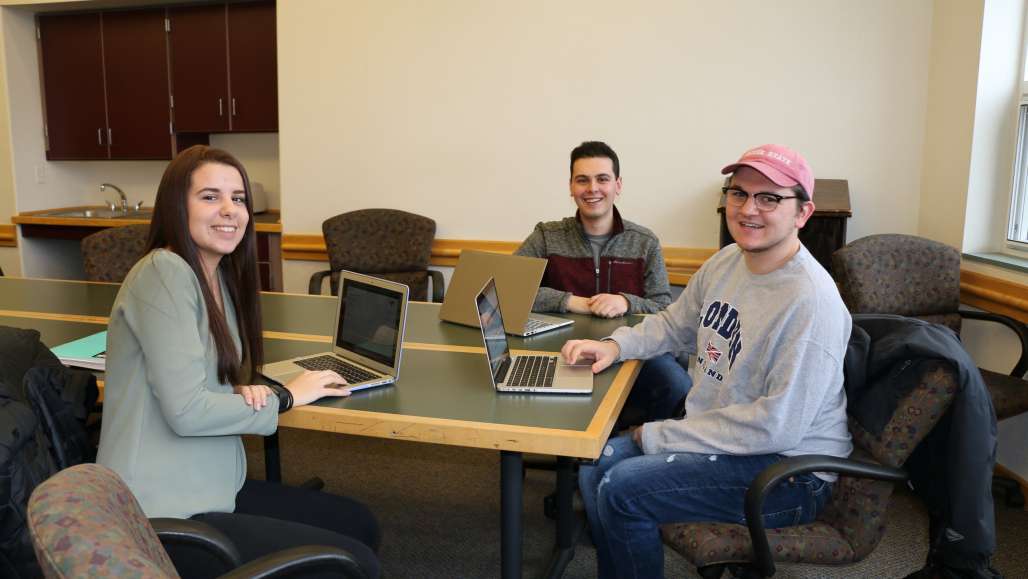At the Academic Excellence Conference: Restorative Justice Curriculum Project

Bessemer, Alabama, February 1946: Timothy Hood, an African American man and honorably discharged Marine, was shot several times by a white streetcar conductor after he moved a Blacks Only sign in the back of a bus. Critically injured, Hood was then shot to death by the police chief from a neighboring town, who claimed self defense. The coroner ruled the killing “justifiable homicide.”
Hood’s is one of three cases that a group of Keene State education majors are helping bring to light. In conjunction with Northeastern University Law School’s Civil Rights and Restorative Justice Project, the students have devised lesson plans for high school social studies students.
“It’s easy to teach the content of the Civil Rights movement,” says Nicholas Yialiades, “but this pushes it so much beyond the content. Even just the concept of justice as an ideal. What does that mean? What does it mean that there were citizens in this country for whom that was denied? They were denied justice. So what do we do with that today? Getting high school students to grapple with those bigger thoughts – it’s powerful.”
For the lesson plans, Nick, a secondary education, history, and English triple-major, teamed up with two other students in Professor John Sturtz’s fall semester Methods II class: Alexis Sanborn, a secondary education and Holocaust and genocide studies major, and Tyler Chaisson, a secondary education and history major. All three are seniors who are completing student teaching this semester and plan to teach at the middle- or high-school level.
Sturtz heard a radio story last year about the Civil Rights and Restorative Justice Project, which serves as a resource for scholars, policymakers, and organizers who are seeking to remediate civil rights injustices that took place between 1930 and 1970. He reached out to its director, asking if his students could contribute in some way. As it happened, the folks at the Project had been wanting to develop lesson plans for secondary school classrooms. That seemed like a great fit for students in his Methods II class, who learn the nuts and bolts of running a classroom along with observing teachers in action and teaching a couple of practice classes at local placement schools.
“Northeastern sent us three of the more robust cases that they have information on,” says Sturtz. “These were violent cases where perpetrators were not necessarily brought to justice, and some victims were not necessarily recognized as victims.”
Nick, Alexis, and Tyler built lesson plans around each of the three cases, utilizing three different teaching methodologies. One was an inquiry-based task, one was a lesson centered on discussion and dialogue, and one focused on the use of primary sources.
One of the plans calls for the high-school students to develop a memorial to two victims. “Not only would they be reading the content and understanding what happened, but they would also be executing more real-world skills,” Tyler says. “How would you contact someone about a memorial? How would you design it? When would you schedule it? That kind of lesson really gets students involved and makes them want to learn – it’s interactive rather than just a lecture.”
For Alexis, working on the restorative justice curriculum enhanced her studies and will enhance her teaching. “Holocaust and genocide studies is extremely interdisciplinary,” she notes. “It’s very interlinked with this, and I just think it’s important that we start teaching our students about this. It’s not something we were exposed to in my high school, and I think it will change some of the things that I end up teaching about, and how I go about teaching them. It’s worth the extra work to get something that makes my students think, and it impacts their lives as citizens after they leave my classroom.”
Alexis, Tyler, and Nick will lead a panel discussion about their lesson plan project at the upcoming Academic Excellence Conference, which happens Saturday, April 13.





